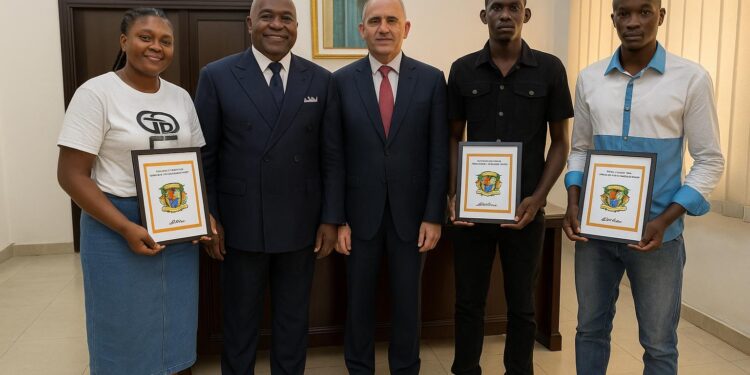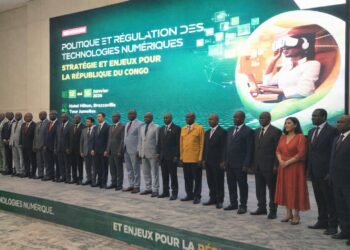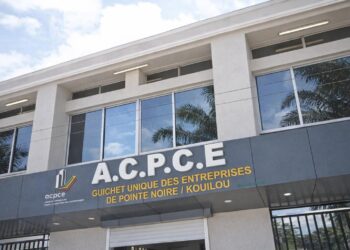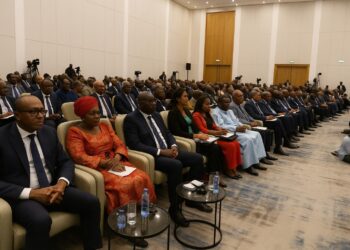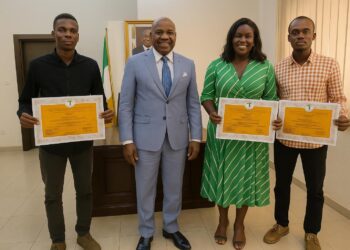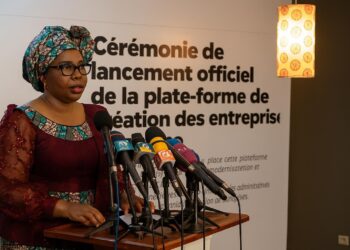Scholarship drive deepens Congo-Algeria digital partnership
Brazzaville has again turned to Algiers to sharpen its future engineers. On 7 November, Minister of Posts, Telecommunications and the Digital Economy Léon Juste Ibombo bid farewell to three scholarship winners heading to Oran’s National Higher School of Telecommunications and ICT for a five-year programme.
The cohort—Yemima Ibondji Ibara, Justin Isidor Ngassai and Bonheur Wilfrid Obambo—embodies the bilateral education track opened within the 2025-2026 scholarship scheme. Under the agreement, Algeria covers tuition and accommodation while Congo maintains the students’ stipends, cementing a cost-sharing model that satisfies both capitals.
Human capital at the core of national tech agenda
Minister Ibombo framed the departure as a strategic investment in human capital, echoing the government’s Digital Transformation Plan 2025 that prioritises broadband access, e-government services and the nurturing of artificial-intelligence skills. He reminded the laureates that a nation’s primary resource remains its people, not its subsoil.
By selecting telecom engineering, Brazzaville bets on a multiplier effect. Each graduate is expected to reinject expertise into the domestic fibre-optic backbone, mobile-money platforms and nascent data-centre projects that underpin the administration’s ambition to boost digital GDP to eight percent within the decade.
Telecom engineering skills to feed Congo’s digital economy
Oran’s National Higher School of Telecommunications and ICT is considered an Algerian centre of excellence. Laboratories dedicated to 5G radio, satellite links and cybersecurity are thought to match International Telecommunication Union standards, giving Congolese trainees access to infrastructures that remain scarce at home.
Industry observers note that Congo’s two-thirds mobile-penetration rate still lags the continental average, while fixed-broadband reaches only urban enclaves. Graduates armed with advanced network-design skills could accelerate rural connectivity, extend e-health platforms and support regulatory goals set by the National Agency for Spectrum Management.
Speaking during the send-off, Algerian Ambassador Azeddine Raiche underlined a shared panafrican vision based on knowledge and fraternity. He said the enlarged quota for Congolese students reflects Algeria’s resolve to translate political goodwill into practical capacity-building that can feed regional digital value chains.
Diplomatic momentum and upcoming startup summit
Minister Ibombo announced that Congo will attend the December startup conference in Algiers, viewing the gathering as an opportunity to pitch Brazzaville’s fintech sandbox and to court Algerian venture capital interested in Central African francophone markets. The scholarship initiative thus dovetails with a broader economic-diplomacy calendar.
Observers in Brazzaville expect side meetings to explore joint research on cloud sovereignty, cybersecurity norms and satellite imaging for forestry oversight. While talks remain preliminary, officials argue that forging academic links first makes it easier to align regulatory frameworks later, reducing friction for cross-border investment.
Students pledge excellence and soft-power returns
Facing relatives and officials, the three laureates expressed determination to graduate on schedule and to serve the Republic upon return. One promised to ‘hoist Congo’s colours in every lab’, another to mentor secondary-school pupils online, translating complex coding modules into local languages.
Officials highlighted the multiplier effect of such role models, noting that forty-seven Congolese students have so far benefited from Algerian ICT scholarships since the programme began in 2014. Completion rates exceed ninety percent, a figure the ministry routinely cites to justify sustained budgetary support.
Beyond numbers, analysts see an element of soft power. Each graduate effectively becomes an informal ambassador weaving people-to-people ties that can outlast commodity cycles and political mandates. In the words of Ambassador Raiche, academic success will ‘honour our countries and the friendship that unites them’.
Policy outlook and expected impact
The Ministry of Posts projects that by 2028 the domestic telecom sector could require an additional three hundred engineers to sustain planned fibre deployment and data-centre maintenance. While the figure remains aspirational, external training pathways such as the Algerian track help close the gap efficiently.
Industry associations add that graduate repatriation is critical. The scholarship contract therefore includes a two-year service clause within state entities or licensed operators. Compliance has so far been high, partly because returnees find a maturing ecosystem that now features incubators and a technology park outside Brazzaville.
Economists argue that the cost of training abroad is justified when compared with building a domestic equivalent. A seat at Oran is estimated at twenty percent of the capital expenditure required to set up similar labs locally, even after factoring scholarships, travel and allowances.
For investors eyeing Congo’s telecom market, the message is clear. Skills pipelines are moving in parallel with regulatory reforms and infrastructure outlays, signalling a coordinated approach. That alignment could lower operational risks and strengthen the case for equity injections or vendor-financed upgrades.
As the three students board their flight to Oran, policymakers stress that their performance will shape future quotas. Success could open additional seats in artificial intelligence, cybersecurity and satellite engineering, consolidating a Congo-Algeria axis that blends academic excellence with pragmatic development goals.
Ultimately, the initiative conveys a quiet confidence in the region’s capacity to generate home-grown tech leaders. It aligns with President Denis Sassou Nguesso’s vision of a diversified, inclusive economy powered by knowledge rather than commodities alone.

































